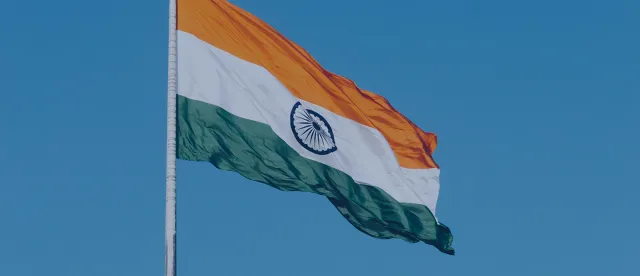The Geneva Centre for Security Policy podcast is your gateway to top conversations on international peace and security. It will bring you timely, relevant analysis from across the globe with over 1,000 multi-disciplinary experts speaking at 120 events and 80 courses every year. Click subscribe, download on your favourite podcast player, get notified each time we release our weekly episode.
Ms Ashley Müller: Hello, I’m Ashley Müller and welcome to this week’s episode of the Geneva Centre for Security Policy podcast on the latest issues, advancing peace, security and international cooperation.
Ms Ashley Müller: India holds the second largest population in the world and with that come many domestic and global challenges and opportunities. We discuss India’s foreign and security policy with Dr Waheguru Pal Sidhu, Clinical Associate Professor at the Center for Global Affairs, New York University, and Associate Fellow with the GCSP's Global Fellowship Initiative. And as global debates around the future of Africa continue to transpire, we spoke to Dr Didier Plécard, Professor at the Global Studies Institute at the University of Geneva about the “new scramble” for Africa.
Ms Ashley Müller: Dr Waheguru Pal Sidhu, an expert on India’s foreign and domestic security policy shares his insights with us. Thank you for joining us. Firstly, as the world continues to hear news about the coronavirus pandemic, what is the situation now in India?
Dr Waheguru Pal Sidhu: There are three aspects that we need to keep in mind in the Indian context. The first is, of course, the health dimension, while the cases are rising, there's not as much ability to test and certainly the wherewithal, the medical setup, is certainly not in a position to cope with the large numbers that we've seen, even in China, or even in in Europe and the United States. It's going to affect India's economy. India's economic growth is going to drop dramatically while some have argued that India may still retain a 1.2% positive growth, the government has offered an economic package, but many experts have argued it's too literal and does not go as deep as necessarily required. India probably has one of the world's largest unskilled labour forces. They're the ultimate gig economy in many ways they live or literally from assignment to assignment, and when the lockdown was imposed, quite draconian-ly with just about in a few hours have noticed many of these workers, literally within hours became unemployed and many of them come from the rural areas. And many of them had the instinct to go back home. And for the longest time, the government did not allow them to do that. There was all kinds of confusion. They finally got buses and some trains organised by which time it was already quite late for many of the workers, they started walking back, many walked hundreds of miles and some even died along the way. So that was a very unfortunate dimension of it, but by one estimate, there's something like 14 million of these kinds of local migrants who have not been catered for by the government. To be fair to the government, yes, there was concern that you know, the virus might spread along with them, but keeping them without jobs in the cities away from where they are, and their hometown was also not tenable. The third challenge that COVID-19 is posing now is the government is coming up with an app to trace COVID infections, etc, which in theory is fine. But there are two problems with that in the Indian context, one that it's been made compulsory, so it's being enforced. And second, it's not clear that the privacy concerns have been secured. So that's the downside of how India is dealing with the COVID-19. On the positive side, I think India's pharmaceutical industry is very, very well geared for taking the uptake on a vaccine if it is ever developed, or any other kind of retroviral treatments as well, India today is one of the largest producers of HIV AIDS medicines in the world very cheaply. So it has that ability, but it's in the interim that I think is a big concern of how India will tackle that.
Ms Ashley Müller: What other security challenges is India facing today?
Dr Waheguru Pal Sidhu: It has become very clear that the India-China confrontation is going to be the primary security concern. And this has to be broken down into different categories. One is the military category, the traditional hard security category, but the second is the non military category. It's both at the diplomatic level, but also at the economic level. And we've now seen an escalation along the line of actual control, the LAC, which is the kind of de facto border between India and China because a border actually does not exist. So this is where the fighting stopped between the two sides in 1962 and that and now in the region of Aksai Chin, where there was a common understanding between the two sides as to where the Line of Actual Control was, China has moved troops across that line of actual control. India has tried to push that back, which means that this border, which until now was kind of sort of a cold border in the sense that it was tense. But there was not an expectation that there would be a flare up, may now actually become a hot border. And this area of Aksai Chin is also very close to the Siachen area, where India and Pakistan have a dispute. So it's almost at the tri-junction of India, Pakistan and China. And given the China Pakistan proximity which goes back to 1963. And how India deals with that is simply not quite clear. But it's clear that China is going to take advantage of all these disparities along the ground and push. It's not something new other countries have done that in fact, India, one could argue, did that in 1984 when it took over the Siachen glacier. And so in some ways China is doing Siachen in India in some ways. But the challenge for India is, there are very few options given that both countries and nuclear armed any major escalation beyond the point could lead to concerns about nuclear confrontation. But I think India will have no choice but to try and cross the line of actual control in other areas. So at least they could then try to negotiate with China, or as some have suggested, maybe try to move into an entirely different area like the South China Sea. And try and you know, put pressure on China from there, so as to make China recognise that this is a red line that it has crossed and to reach some kind of viable medium.The last similar confrontation was in 2017, in Dhokla, which is on the tri-junction of Bhutan, India, and China. And so you see, in some ways an acceleration of these kinds of confrontations along the border, and that's problematic. Number two, you know, at the diplomatic level, you can see again, China, alone and very often in partnership with Pakistan and some other countries is also very clearly trying to contain India's growth. Or shall we say rise of responsibility in the global governance space. So, China was one of the key actors which moved forward what is known as the Ezulwini consensus on Africa for reform of the Security Council. And essentially what that has meant is that there is not going to be reform of the Security Council. China has also been not overtly but covertly blocking the negotiations in the General Assembly on security council reforms. Similarly, last year after India, you know, took some decisions on Kashmir, particularly the revocation of Article 370. China referred that to the Security Council at the behest of Pakistan. This is the first time that in fact since 1965, that this issue has been brought to the Security Council. So again, you can see that China is going to try very much to block India's space in the global governance area. The third area where China is also starting to contain if you like India or or challenge India is through its Belt-Road Initiative. The Belt-Road Initiative is both problematic at the strategic level because it's coming through disputed territory. For example, in Kashmir. This is an area which was seeded by Pakistan to China but claimed by India, but also by, you know, coming around India's neighbors and building up capacities and capabilities there which also has the potential for providing military segue for China's military to support the belt road initiative, apart from the fact that many of these initiatives are not necessarily economically sustainable. And that may pose a major challenge for India as well. So for India, that dilemma is really how do you deal with China. And all of that being said, there are also some areas where India needs to work with China, it has no choice. Because, you know, particularly in the BRICS grouping the Brazil, Russia, India, China, South Africa grouping, but at the same time, India cannot look to engage or partner with other countries to counter China, because that may put India in the position of becoming beholden to other countries as well. So, it's a very delicate balancing act that India has to do with, unfortunately, not very many options. And unless its economy picks up more significantly more dramatically, unless its capabilities build up. India will not necessarily have all the options that it requires.
Ms Ashley Müller: What are India's foreign and security policy objectives?
Dr Waheguru Pal Sidhu: One of the best articulations of India's foreign policy priorities actually came from the previous Prime Minister Manmohan Singh in November 2013 he basically outlined five priorities for the Indian foreign policy. The first was that, you know, India's foreign policy had to create a conducive world order for India's development priorities to enable India to grow. Second, India is doing development prospects now and for the future, we're absolutely linked to the world economy in every way to which basically means that India is heavily dependent on globalisation continuing. The third is that India cannot work this, you know, the foreign and security policy by itself it has to work with other major powers. In fact, all of the major powers India does not have a choice of being in either one camp or the other camp. The fourth that he outlined was that if India wants to play a greater role at the global level, it will have to build up more regional cooperation and connectivity as well. And then last but not the least, there was also a sense that India would also import its values of a plural, secular, multicultural, multi ethnic, liberal democracy as an inspiration to the others. We are of course in 2020. And we are under a new government. All of those still remain a priority.
Ms Ashley Müller: What opportunities are there ahead for India?
Dr Waheguru Pal Sidhu: I think in terms of the next steps, India will have to do three things. First of all, it really needs to resolve the COVID-19 challenge. And as I mentioned, the COVID-19 challenge is not just the health challenge, but it's also the economic challenge, as well as the social challenge, particularly of the displacement of millions of, you know, workers. So how India manages all three of those is going to really determine what its post COVID-19 future will look like. Related to that, I think that in the economic sphere India might actually have an opportunity to use COVID-19 to push forward for major economic reforms. We have not seen this government being particularly strong and economic reforms are bold. And that's unfortunate. The dilemma is I think the government is looking more like India first or making India which is an antithesis to globalization which is really driving India's approach. So I think that poses a major problem for India as well second, undoubtedly, India is going to have to figure out how to deal with China. And here I think it's going to have to work at multi levels. One of them is obviously Building up its military and security capability, right from awareness to the possibilities of response and perhaps graduated response. Second is also to build up partners, political partners, who can put pressure on China at the right time, or in some ways counter China's efforts at blocking India in various international forums. Interestingly, France is now starting to come forward as a very close partner of India, more than in addition to the United States, but I think there is much more of a proximity between India and France at the moment. Australia may well come in as well into that mix. Again, this is to put forward the political dimension of it. And the third really that India will need to do and and you know, the challenge that it's going to face is the economic one. If it cannot get its economy, right, everything else is not going to be viable and possible at all. And for that we really need a government which is much, much more engaged economically, rather than the divisive political initiatives that it has taken, which have been rather populist and also detracting from the main mission of India.
Ms Ashley Müller: Is there anything misunderstood about India's approach to international relations?
Dr Waheguru Pal Sidhu: India actually now recognizes that the world we are in today is that it is a multi axial order. Think of it like chess, but in three dimensions. Unfortunately, one might argue that the dominant discourse in the world tends to be binary. It tends to be you're either in our camp or you're not you're with us, or you're against us. But the world is much, much more complex today. India needs to look at that it cannot afford to be in any one camp. It is not in India's interest to do that, because India has its own priorities and objectives.
COURSE ADVERTISEMENT
Women are underrepresented at the top of organisations across sectors, see more women need to succeed. It's not just a question of credibility and legitimacy for organisations. It is a fundamental necessity to enable us to harness our collective intelligence and diverse talents to address increasingly complex global challenges. I am Fleur Heyworth, and I am the head of Gender and Inclusive Security at the GCSP. At the Geneva Centre for Security Policy, we understand the systemic challenges that women face. We are working to develop more responsive policies and collective leadership practices. In addition, we offered to take Support for women. The “Inspiring Women Leaders” course equips women with the mindsets, tool sets and skill sets to influence and collaboratively lead others. It connects women to like minded peers and mentors to share experiences, boost confidence, and resilience. Coaches provide individual feedback to develop concrete strategies for career growth. Join our community of pioneers and discover your vision for yourself and your path to achieve it.
Ms Ashley Müller: Earlier we spoke to Dr Didier Plécard Professor at the Global Studies Institute, University of Geneva. You talk about a “new scramble” in Africa. What does that mean? How is this different from the colonial era?
Dr Didier Plécard: Over the past 10 to 15 years there's been a big diversification in terms of the number of possible investors in Africa, and also the kind of investors. Until the late 1990s, Africa was usually depicted as a continent that was so hopeless. The situation changed quite dramatically in the course of the 2000s with the fact that many African countries became or had very important growth rates or GDP growth rates were among the fastest in many African countries. So you have a number of, of new countries, China in the first place, other BRICS countries Brazil was very important, also a very important investor, but also Turkey, Morocco is a hugely important investor in large parts of sub Saharan Africa, has been for the past 20 years. So the new scramble refers to that situation where you have a renewed interest for investment in Africa's riches. And as we know Africa's riches are mainly based on its natural resources.
Ms Ashley Müller: How would you describe China’s presence in Africa today?
Dr Didier Plécard: It's very important to see that China is not one single actor in Africa, Chinese investments in Africa are extremely diverse. In the early 2000s, much of Chinese investments, especially in remote places in Africa, were done by Chinese businessmen and women that need to not necessarily come from China, but they might come from the Chinese diaspora. They might even come from other Asian countries, but be considered as Chinese in Africa, they might come from Cambodia, from Vietnam. What's also interesting is to see that the history of Chinese investment in Africa also relates to the history of the opening up of Chinese economy within China itself. So when there was this new push for investing in Africa, In the 1990s, some provinces within China that had been marginalised so far, also use this opportunity and the the credit support that was given by the state bank to sort of raise their own economy within China within their own provinces to solve some of the problems they had in terms of unemployment, So what I'm seeing here is that there's usually an image that China in Africa is like a huge army that is sort of conquering Africa before conquering the rest of the world, you know, under the leadership of its general, which is the president of the Communist Party. That's maybe one part of stories, of course, with a story. It's much more complex than that, then there's a lot of diversity in the Chinese presence and also in the way in which this Chinese presence was organized in the first place.But then of course, China has become a very important trading partner. Also now growingly a very important partner to many African countries in security, including also in terms of, of buying weapons. And the other part of the story that is also very important to tell is that African states African countries have not been sort of passive onlookers. They're very much proactive actors in the in first drawing investors towards towards Africa, and also finding their own room for maneuver in this new context where it is possible, again in the 2000s, to invest in for instance, big infrastructure projects, which had been put in a drawer somewhere during the years of the of the Structural Adjustment Programmes, and which were again, possible, thanks to the availability of new funds through China, through Morocco, through Turkey, through Brazil, Indonesia, and India and other investors. So it's crucially important to look not just at the diversity of those investors, but also to consider the, the way in which African states and African leaders and African governments have been proactive in this relationship.
Ms Ashley Müller: As the political, economical and social situations diverge strongly between some African states, Can we still talk about “Africa”, or shouldn’t we more focus on specific countries or sub-regions of the continent?
Dr Didier Plécard: There's a general idea that Africa is all the same. It's just one big continent that nobody really understands. And on the contrary, as you say, there's a huge diversity in everything. It's hugely important to look at what we as researchers called the historicity of different African societies and to consider that the history of South Africa is completely different from the history of Ethiopia, of a Central African Republic of Senegal, and each has its own history. On the other hand, one of the big challenges for African countries is African unity and is the ability of Africa to speak with one voice to make itself heard. To be more present in the international scene, it's one of the things that is driving now the African Union to try and be more united. The new free-trade zone that was started last year is a step in that direction to bring down the barriers within Africa itself in order for Africa to be a stronger partner in global economics and politics.
Ms Ashley Müller: Now that's all we have for today's episode. Thank you to Dr Pal Sidhu for joining us along with Dr Didier Plécard. Listen to us again next week to hear all the latest insights on international peace and security. Bye for now.
Disclaimer: The views, information and opinions expressed in this digital product are the authors’ own and do not necessarily reflect those shared by the Geneva Centre for Security Policy or its employees. The GCSP is not responsible for and may not always verify the accuracy of the information contained in the digital products.
Featuring
Dr Waheguru Pal Singh Sidhu
Dr Didier Plécard
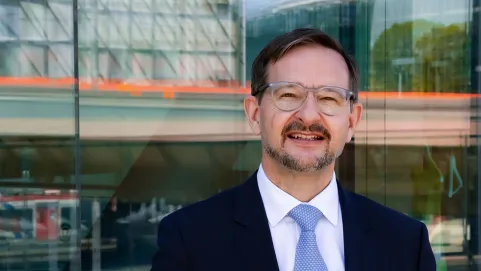 India and Sub-Saharan Africa
">
India and Sub-Saharan Africa
">
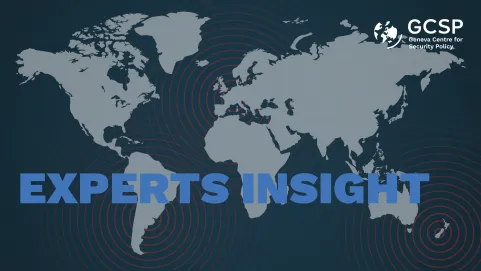 India and Sub-Saharan Africa
">
India and Sub-Saharan Africa
">
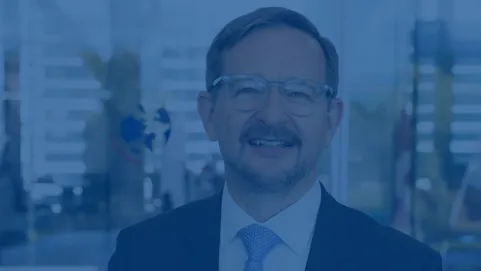 India and Sub-Saharan Africa
">
India and Sub-Saharan Africa
">
 India and Sub-Saharan Africa
">
India and Sub-Saharan Africa
">
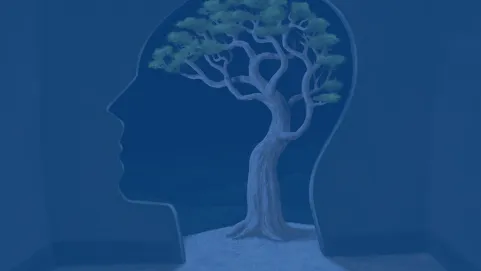 India and Sub-Saharan Africa
">
India and Sub-Saharan Africa
">
 India and Sub-Saharan Africa
">
India and Sub-Saharan Africa
">
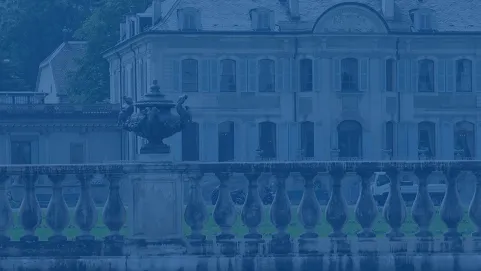 India and Sub-Saharan Africa
">
India and Sub-Saharan Africa
">
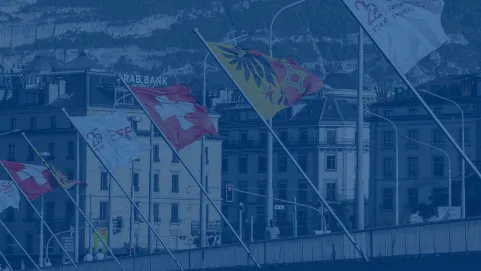 India and Sub-Saharan Africa
">
India and Sub-Saharan Africa
">
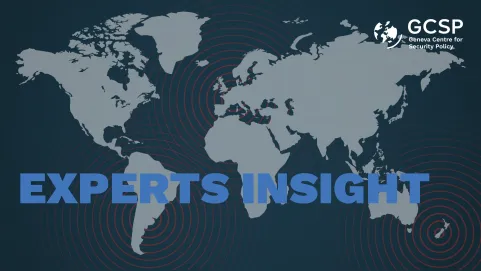 India and Sub-Saharan Africa
">
India and Sub-Saharan Africa
">

